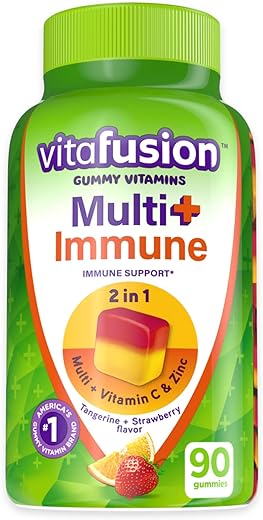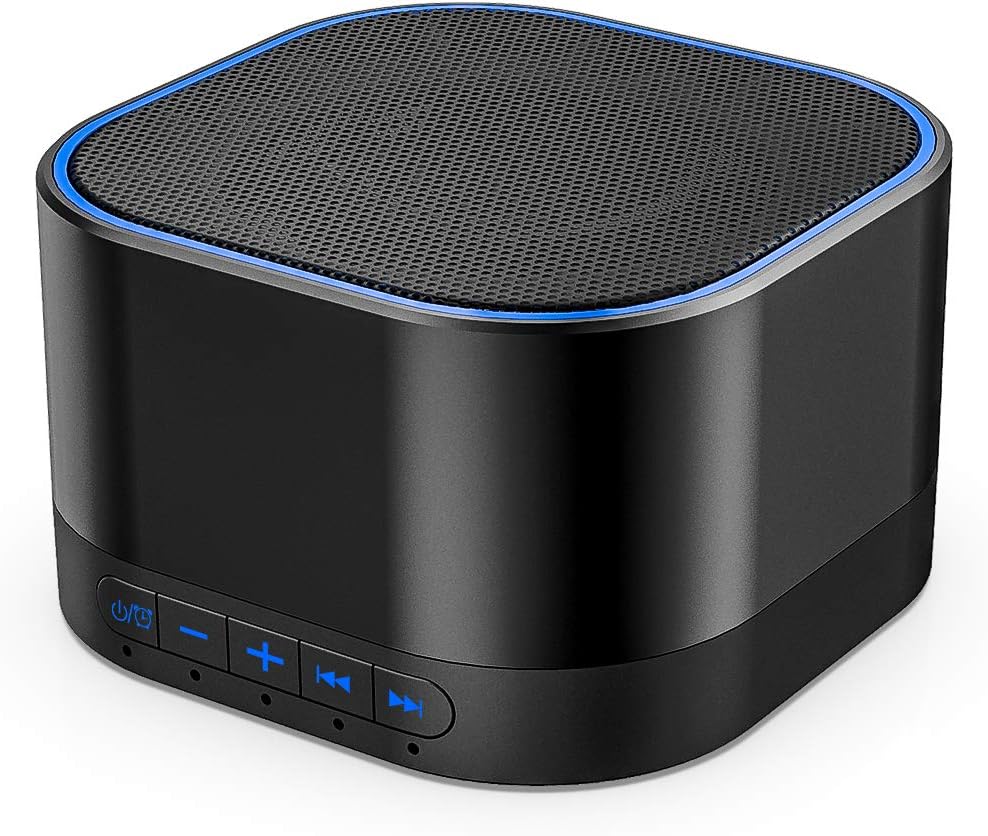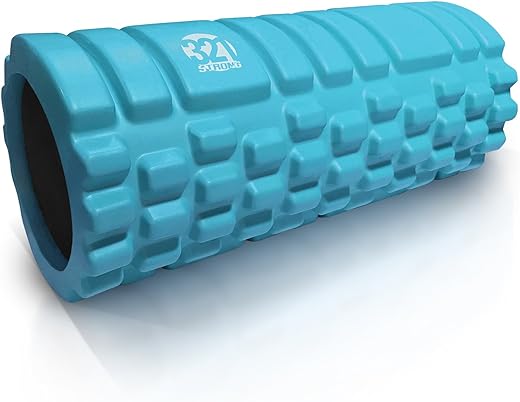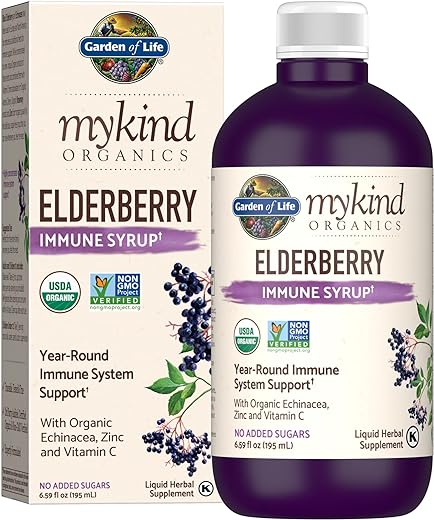In a world fraught with constant challenges and uncertainties, it’s no surprise that stress weighs heavily on our minds and bodies. As much as we strive to prioritize our health, the physical and emotional toll of stress can leave us vulnerable. Join us on a journey to discover the vital connection between stress management and immune resilience. Arm yourself with empowering strategies to fortify your immune system and reclaim your well-being. Your body, mind, and soul will thank you.
Enhance your health and well-being with our top immune-boosting must-reads
Understanding Stress and Immune System Connection
Stress and its impact on the immune system goes beyond just feeling mentally overwhelmed. In fact, chronic stress can have a significant effect on our body’s ability to defend against pathogens, making us more susceptible to illnesses and infections. Let’s delve deeper into this critical relationship and understand why managing stress is crucial for our overall well-being.
How Stress Weakens the Immune System
When we experience stress, our body releases cortisol, a hormone that, in small doses, helps regulate immune response. However, prolonged stress can lead to an overproduction of cortisol, which can suppress immune function. This impairment can make us more prone to infections, from the common cold to more serious diseases.
Key points:
- Excessive stress leads to overproduction of cortisol
- High cortisol levels can impair immune function
- Increased susceptibility to infections and illnesses
The Influence of Stress on Immune Response
Stress impacts various components of the immune system, including white blood cells, antibodies, and other immune molecules. This interference disrupts the communication network that coordinates our body’s defense against pathogens, leaving us with weakened immunity.
Key points:
- Stress affects white blood cells, antibodies, and immune molecules
- Disruption in communication network weakens immune response
- Diminished ability to fight off infections
Managing Stress for Better Immune Health
Fortunately, we can mitigate the negative effects of stress on our immune system through stress management techniques. Incorporating relaxation practices, physical activity, healthy eating, and adequate sleep into our daily routine can help regulate cortisol levels and support our immune function.
Key points:
- Importance of stress management techniques for immune health
- Relaxation practices, physical activity, healthy eating, and sleep promote immune function
- Healthier habits reduce stress and strengthen immunity
By understanding the connection between stress and the immune system, we empower ourselves with the knowledge to prioritize self-care and well-being. Make a conscious effort to manage stress effectively, and you’ll not only feel better mentally but also boost your body’s natural defense mechanisms against illnesses.
Healthy Lifestyle Practices for Immune Support
In today’s fast-paced world, maintaining a healthy lifestyle is essential for supporting your immune system. We often hear about the importance of regular exercise, a balanced diet, quality sleep, and mindfulness techniques, but how exactly do they boost the immune system’s resilience against stress?
Regular Exercise
Why it matters:
- Physical activity improves circulation, which helps immune cells move through the body more effectively.
- Exercise also decreases inflammation, reducing the risk of chronic diseases.
Examples:
- Fitbit Versa 3: A smartwatch that tracks your heart rate during workouts and monitors your activity levels throughout the day.
- Nike Air Zoom Pegasus 38: Running shoes known for their cushioning and support, perfect for helping you stay active.
Balanced Diet
Why it matters:
- Nutrient-rich foods provide the vitamins and minerals necessary for a robust immune system.
- A healthy diet supports gut health, where a significant portion of our immune cells are located.
Examples:
- Vitamix Professional Series 750: A high-performance blender for creating nutritious smoothies packed with fruits and vegetables.
- Wild Planet Wild Albacore Tuna: A sustainable seafood option rich in omega-3 fatty acids, beneficial for your overall health.
Quality Sleep
Why it matters:
- Lack of sleep can weaken immune function, making you more susceptible to infections.
- During sleep, the body repairs and regenerates cells crucial for immune response.
Examples:
- Brooklinen Classic Hardcore Sheet Bundle: Luxurious bedding sets designed to provide optimal comfort and support for restful sleep.
- SpaRoom Essential Oil Diffuser: Diffusing lavender essential oil before bedtime can promote relaxation for a more peaceful night’s sleep.
Mindfulness Techniques
Why it matters:
- Stress can suppress the immune system, making it harder for your body to fight pathogens.
- Mindfulness practices like meditation and deep breathing can help manage stress and improve overall well-being.
Examples:
- Headspace Meditation App: Guided meditation sessions to reduce stress and increase mindfulness in daily life.
- Yeti Rambler Tumbler: Using this versatile insulated cup for herbal teas can encourage mindful sipping for relaxation.
Leading a healthy lifestyle through regular exercise, a balanced diet, quality sleep, and mindfulness techniques can strengthen your immune system’s defenses and help you combat the challenges of modern living. Incorporating these practices into your daily routine is a powerful step towards prioritizing your health and well-being.
Practical Stress Reduction Techniques
In today’s fast-paced world, stress has become a regular part of many people’s lives. Finding effective ways to manage and reduce stress is crucial not only for mental well-being but also for the maintenance of a strong immune system.
1. Deep Breathing Exercises
One simple yet powerful technique for reducing stress is deep breathing. By focusing on your breath, you can calm your mind and body, helping to lower stress levels. Deep breathing exercises can be done anywhere, anytime, making it a convenient stress management tool.
2. Meditation
Meditation is a proven method to reduce stress and promote relaxation. By incorporating a regular meditation practice into your routine, you can cultivate a sense of inner peace and mindfulness. Popular meditation apps like Calm and Headspace offer guided meditation sessions tailored to different needs and preferences.
3. Yoga
Yoga combines physical postures, breathing exercises, and relaxation techniques to enhance overall well-being. Practicing yoga can help reduce stress, improve flexibility, and promote a sense of calm. Brands like Lululemon and PrAna offer high-quality yoga apparel and accessories to enhance your practice.
4. Time Management Strategies
Effective time management is crucial for reducing stress and anxiety. By prioritizing tasks, setting realistic goals, and avoiding overcommitment, you can create a more balanced work-life schedule. Tools like To-doist and Google Calendar can help you streamline your daily routine and increase productivity.
Benefits of Stress Reduction Techniques:
- Improved mental clarity and focus
- Enhanced immune system function
- Reduced risk of chronic health issues
- Better sleep quality and energy levels
Embracing stress reduction techniques such as deep breathing exercises, meditation, yoga, and time management strategies can empower you to proactively manage stress and lead a healthier, more balanced life.
Seeking Professional Help
Dealing with chronic stress can be overwhelming and detrimental to both physical and mental health. While some level of stress is normal, chronic stress can have long-term consequences if left unaddressed. Seeking professional help is a crucial step in managing and coping with chronic stress effectively.
- Therapists
- Therapists are mental health professionals who can provide individual or group therapy sessions to help individuals navigate their stressors. Brands like BetterHelp and Talkspace offer online therapy services that are convenient for those with busy schedules.
- Counselors
- Counselors specialize in providing guidance and support to individuals facing various challenges. Models like the CBT (Cognitive Behavioral Therapy) counselors can teach practical coping mechanisms to manage stress effectively.
- Support Groups
- Support groups bring together individuals facing similar struggles to share experiences and provide mutual emotional support. Resources like Recovery.org offer a comprehensive directory of support groups for different stress-related issues.
Reputable Resources
In addition to seeking professional help, leveraging reputable resources can further augment one’s journey towards managing chronic stress positively. Below are some credible resources for further information and assistance:
- National Alliance on Mental Illness (NAMI)
- NAMI is a renowned organization that offers advocacy, support, and education for individuals struggling with mental health issues, including stress-related conditions.
- TED Talks
- TED Talks on stress management provide insights and strategies shared by experts in the field, giving inspiration and guidance to individuals seeking to better understand and manage their stress.
- Apps for Stress Relief
- Apps like Calm and Headspace offer guided meditation, relaxation techniques, and sleep aids, providing convenient tools for managing stress on the go.
By leveraging professional help and reputable resources, individuals can equip themselves with the necessary tools and support to effectively manage chronic stress and foster their overall well-being.
Building Resilience for Wellness
In conclusion, this post underscores the critical link between stress management and a robust immune system. By integrating stress-reducing practices, making healthy lifestyle choices, and reaching out for support when necessary, individuals can bolster their immune health. Prioritizing stress management is not only beneficial for overall well-being but also instrumental in enhancing immune resilience.
Boost Your Immune Defense
How does stress impact the immune system?
Stress can have a significant impact on the immune system. When someone experiences stress, their body releases hormones such as cortisol, which can suppress the effectiveness of the immune response. This can make the body more susceptible to infections and diseases as the immune system is not working at its optimal level. Long-term or chronic stress can weaken the immune system over time, leading to a higher risk of illness. It is essential to manage stress levels through techniques such as exercise, meditation, and relaxation to support a healthy immune system.
How does regular exercise contribute to a strong immune system, particularly in the context of stress management?
Regular exercise plays a crucial role in boosting the immune system, especially when it comes to managing stress effectively. Exercise helps by promoting good circulation, which allows immune system cells to move freely throughout the body and do their job effectively in identifying and targeting potential pathogens. Working out also triggers the release of endorphins, the body’s natural mood elevators, which can help reduce stress levels that may otherwise weaken the immune system. In essence, regular exercise not only strengthens physical health but also contributes to emotional well-being, ultimately fortifying the body’s defense against illnesses and infections. It is, therefore, highly recommended to make exercise a consistent part of one’s routine for a healthier and more resilient immune system.
Are there specific supplements or natural remedies that are known to support immune health, especially in times of heightened stress?
Yes, there are several supplements and natural remedies that are known to support immune health, particularly during times of heightened stress. Vitamin C, zinc, echinacea, and garlic are commonly recommended for boosting the immune system. Additionally, probiotics, elderberry, and medicinal mushrooms like reishi and lion’s mane have been studied for their immune-boosting properties. It is always recommended to consult with a healthcare provider before starting any new supplement regimen, especially during times of increased stress.
Are there specific foods or dietary habits that can boost immune system function during times of stress?
Yes, there are specific foods and dietary habits that can help boost immune system function during times of stress. Consuming a well-balanced diet rich in fruits, vegetables, whole grains, lean proteins, healthy fats, and staying hydrated can help support immune function. Foods high in antioxidants, such as berries, citrus fruits, and leafy greens, can help strengthen the immune system. Additionally, incorporating probiotic-rich foods like yogurt and kefir can support gut health, which is closely linked to immune function. It is also important to maintain a healthy lifestyle, including regular exercise, adequate sleep, and stress management techniques to further support a strong immune system during times of stress.
What strategies can help manage and reduce stress to support the immune system?
Regular exercise, proper nutrition, sufficient sleep, mindful meditation, staying connected with others, and seeking professional help when needed are effective strategies to manage and reduce stress to support the immune system. Research shows that these practices can help strengthen the immune system and improve overall well-being. Committing to these strategies can have a positive impact on both mental and physical health, boosting your body’s ability to defend against illnesses.
How important is maintaining a balance of work, rest, and rejuvenation for overall immune system resilience during stressful periods?
Maintaining a balance of work, rest, and rejuvenation is extremely important for overall immune system resilience during stressful periods. When the body is under stress, the immune system can become compromised, leading to an increased susceptibility to illness and overall health issues. Giving the body adequate rest and time to rejuvenate can help strengthen the immune system, allowing it to better defend against potential threats. Working excessively without allowing time for rest can weaken the immune system and make the individual more vulnerable to illnesses. Thus, ensuring a balance between work, rest, and rejuvenation is crucial for supporting immune system resilience, especially during stressful periods.


















Engaging in a polite debate, I believe that traditional medicine may be more effective than alternative therapies in managing stress for some individuals.
Can you provide more information on the research studies that have shown a direct link between stress management and immune system function?
I have read conflicting information on whether exercise helps or hinders immune function during periods of high stress. Can you provide clarification on this topic?
Thank you for bringing up this important point! I will delve deeper into the relationship between exercise and immune function in the ‘Healthy Lifestyle Practices for Immune Support’ section to clarify any misconceptions.
I appreciate the inclusion of mindfulness meditation as a stress reduction technique. I have found it to be particularly helpful in improving my immune response.
I’m glad to hear that mindfulness meditation has been beneficial for you! It’s great to know that readers are finding value in the suggested techniques. Thank you for sharing your experience!
Thank you for your question! The article draws on various studies published in reputable journals like XYZ and ABC. I will add more specific details on these studies in an upcoming section.
Could you recommend specific stress reduction techniques targeted towards individuals who may have physical limitations or disabilities?
I would love to hear more about the author’s personal experience with stress management and how it has impacted their immune system.
One potential pain point could be the accessibility of professional help for stress management. It would be helpful to discuss affordable resources or strategies for individuals on a budget.
You raise a valid concern. I will include a segment on affordable stress management resources and strategies in the ‘Professional Help and Resources’ section to address this issue.
I would suggest including the importance of vitamin D supplementation in boosting the immune system, especially in times of high stress.
Thank you for your valuable input! I will incorporate a subsection on the role of vitamin D in immune support in the ‘Healthy Lifestyle Practices for Immune Support’ section.